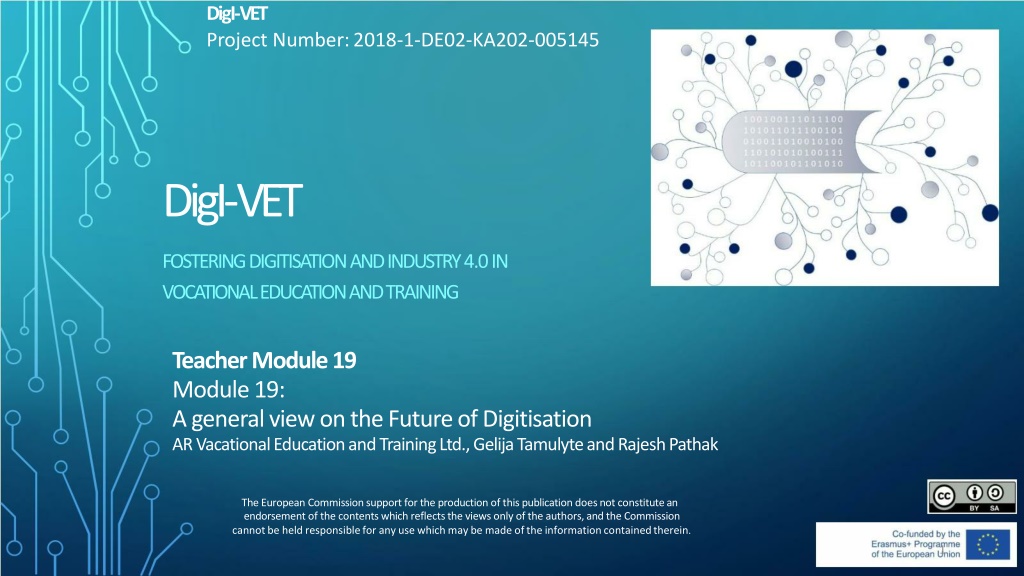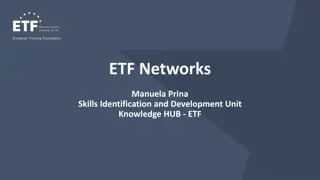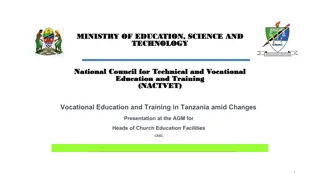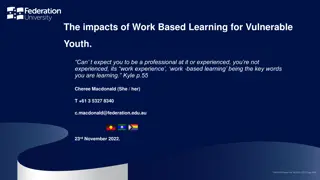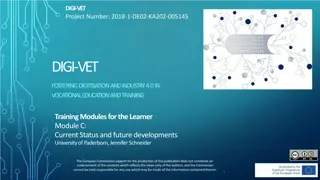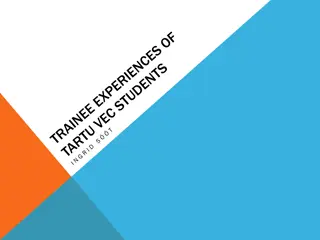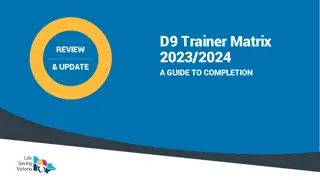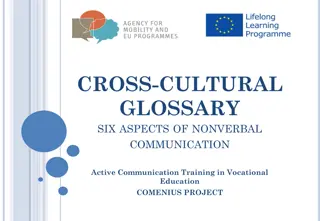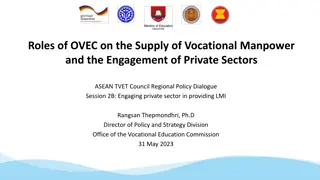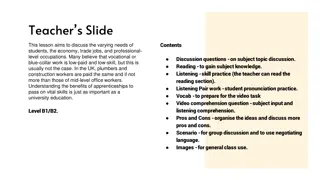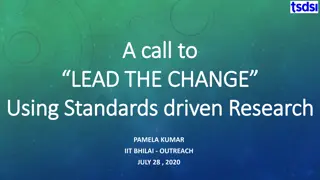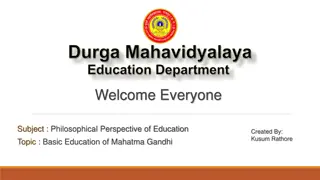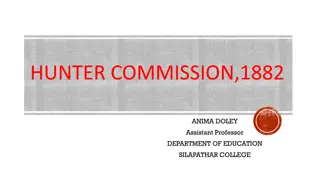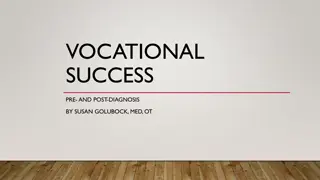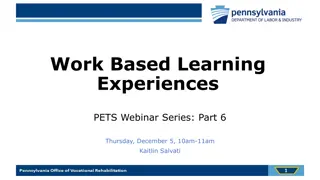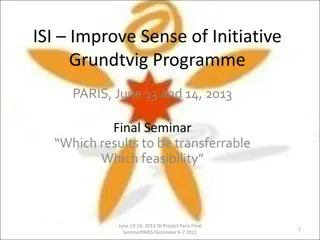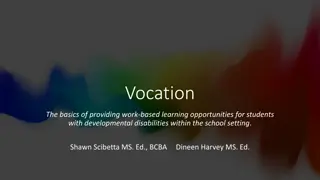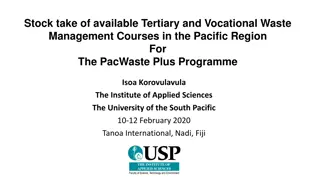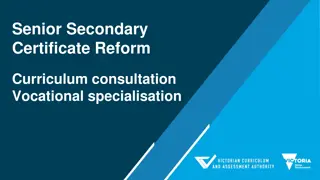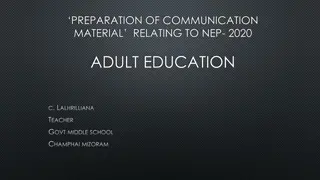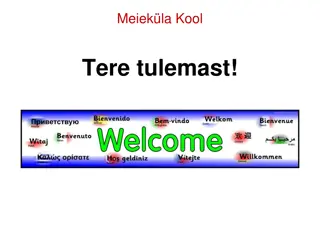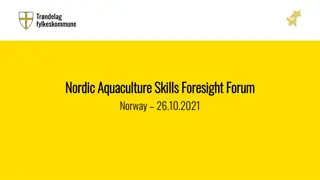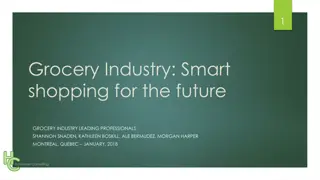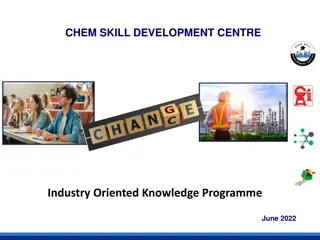Embracing the Future of Vocational Education: Digitisation and Industry 4.0
Explore Module 19's insights on the future of digitisation in vocational education, discussing opportunities, innovations, risks, EU and UK approaches, and learner tasks. Discover the potential impact of automation and digitisation on job markets, with examples like New Zealand's museum project. Delve into current issues such as lack of investments and productivity crises, emphasizing the need for technological transformation. Reflect on Aristotle's vision of autonomous instruments and the evolving job landscape projected by the OECD for future generations.
Download Presentation

Please find below an Image/Link to download the presentation.
The content on the website is provided AS IS for your information and personal use only. It may not be sold, licensed, or shared on other websites without obtaining consent from the author. Download presentation by click this link. If you encounter any issues during the download, it is possible that the publisher has removed the file from their server.
E N D
Presentation Transcript
DigI-VET Project Number: 2018-1-DE02-KA202-005145 DigI-VET FOSTERING DIGITISATION AND INDUSTRY 4.0 IN VOCATIONAL EDUCATION AND TRAINING Teacher Module 19 Module 19: A general view on the Future of Digitisation AR Vacational Education and Training Ltd., Gelija Tamulyte and Rajesh Pathak The European Commission support for the production of this publication does not constitute an endorsement of the contents which reflects the views only of the authors, and the Commission cannot be held responsible for any use which may be made of the information contained therein. 1
Agenda of Module 19: A general view on the future of Digitisation 1. Opportunities 2. Innovations and Risks 3. Three Horizons Framework 4. EU approach and UK approach 5. Learner Tasks 2
[] if every instrument could accomplish its own work, obeying or anticipating the will of others, like the statues of Daedalus, or the tripods of Hephaestus, which, [ ] of their own accord entered the assembly of the Gods; if, in like manner, the shuttle would weave [ ] without a hand to guide it, chief workmen would not want servants, nor masters slaves. Aristotle 3
65 % of Future generation will have job vacancies that do not even currently exist. (OECD, Organisation for Economic Co-operation and Development) 4
Opportunities (Examples) New Zealand project to digitise their museum collections Literautr zur Geschichte des deutschen, sterreichischen und schweizerischen Privat- und Prozessrechts des 19. Jahrhunderts ( Literature on the History of German, Austrian and Swiss Private and Procedural Law of the 19thcentury ) 6
Risks 7
Current issues: Lack of investments (currently research in radio-frequency identification is worthy area of investments) Productivity Crisis Technological transformation takes longer time than expected 8
Three Horizons Framework Lee Kuan Yew School of Public Policy supported by Konrad Adenauer Stiftung in their workshop report discussed their established Three Horizon Framework model describing the future of digitisation. 9
Three Horizons Framework Horizon 1: the case for change Horizon 2: dilemma between vision and reality, transition Horizon 3: vision, ideal system Own figure, followed: TIME (2014): Bill Gates Talks to TIME About the Three Myths of Global Aid. Retrieved from the Internet: https://time.com/1381/bill-gates-talks-to-time-about-the-three- myths-of-global-aid/. Access date: 17.08.2020. 10
Three Horizons Framework Suggests that: How horizons can emerge leading to great potential of digitization; Digitisation leads to monopolistic structures, e.g. some platforms having dominance over others (e.g. Google, Amazon, Facebook); Those platforms encourage investments, innovations and start-ups; Adaptation is needed for successful implementation of digitization. 11
Rozy and Hazy view on future of digitisation The research by Lee Kuan Yew School of Public Policy published in their report two future perspectives of how digitisation can shape our world in the foreseeable future the rosy and the hazy outlook. a world lacking resources constant conflicts between technologies and humanity extreme inequality polarization of income and power Personal identity theft due to the lack of security solving problems using technology that were impossible to be solved the general quality of lives could be improved by prolonging the life of individual Inequality could decrease technologies would be 100% accurate, allowing easy efficient communication 12
EU and UK approach European Union adopted Council Conclusions emphasizing systematic approaches to professionalising the early childhood force. Systematic approaches leading to early child s development providing early education, health, supporting communities lead to better child s abilities to acquire information in the future. UK participates in boosting and supporting the digitisation as well. In 2001, the government set up funding initiative to provide finances to organisations to collect evidence and documents UK s achievements under New Opportunities Fund (NOF) programme. 13
LEARNER TEST The name of Greek Philosopher who suggested long while ago that technologies could damage the need of human labour _______ . OECD presumed that ____ % of future generation will be working jobs that do not exist nowadays. TASK List at least five opportunities for future led by the process of digitization. What are the risks in the future that could occur because of digitisation? ________________. What are the current issues preventing successful digitization in future? What does Three Horizon Framework Imply? 14
Rozy and Hazy view Describe both view that were suggested by Lee Kuan Yew School of Public Policy on future of digitisation. TASK 15
CONTACT ARVET 279 Bethnal Green Road London E2 6AH United Kingdom Rajesh S. Pathak Tel: E-Mail: +44 792 791 1120 admin@elnpartner.co.uk Gelija Tamulyte Tel: +44 754 099 3287 E-mail: info@elnpartner.co.uk http://elnpartner.co.uk http://digivet.eduproject.eu/ The European Commission support for the production of this publication does not constitute an endorsement of the contents which reflects the views only of the authors, and the Commission cannot be held responsible for any use which may be made of the information contained therein. 16
